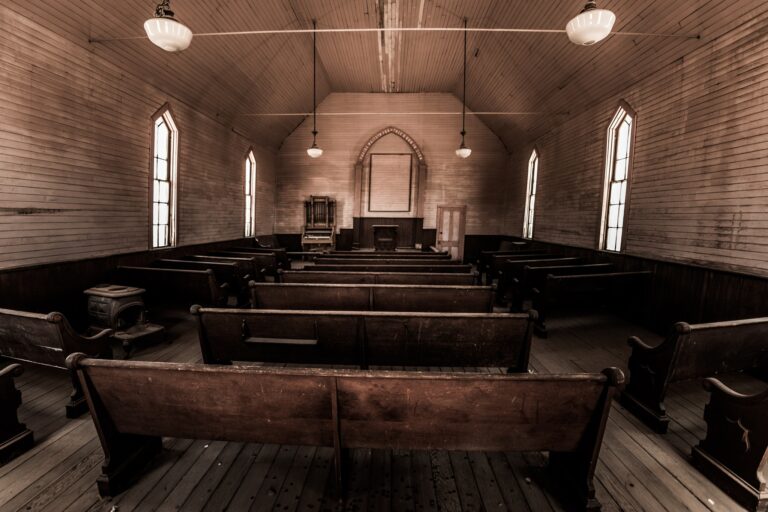The Bible is a surprising book. When I first started reading it in high school, I regularly cocked an eyebrow at the things in it: stories of men and women doing shockingly ugly things— and of a God who loved them anyway. The Big Story of the Bible (and the thousands of smaller stories that feed into it and give it depth) just didn’t turn out like I expected. Skipping ahead to the present, my day-to-day work involves teaching the Bible to people, grinding away so that they would know and love that same God. But even the monotony of a full-time job hasn’t taken the surprise out of the Bible. Even a cynical guy like me can find something almost every day in its pages, a turn of phrase or an argument or a plot twist that makes me think, “Huh. Didn’t see that coming.”
Hebrews 3:1-6 is a paragraph that you could easily glance over without too much thought. Names like “God,” “Jesus,” and “Moses” are so common that they don’t even register as noteworthy to anyone who knows something about the Bible. The imagery of a house is so prevalent that you might be forgiven in thinking that the writer of Hebrews is simply copying and pasting stock phrases. But upon closer inspection, that’s not the case at all:
Therefore, holy brothers, who share in the heavenly calling, fix your thoughts on Jesus, the apostle and high priest whom we confess. He was faithful to the one who appointed him, just as Moses was faithful in all God’s house. Jesus has been found worthy of greater honor than Moses, just as the builder of a house has greater honor than the house itself. For every house is built by someone, but God is the builder of everything. Moses was faithful as a servant in all God’s house, testifying to what would be said in the future. But Christ is faithful as a son over God’s house. And we are his house, if we hold on to our courage and the hope of which we boast.
— Hebrews 3:1-6
As it turns out, there are several surprises in these verses. First, those who believe the gospel of Jesus are “holy brothers” (and sisters — the Greek word could include both) who share a grand invitation to a holy place, namely, heaven. That’s not how I tend to view the people in my church. Even though I truly love my congregation, it just seems too grand to address the people sitting with me in the pews like that. And in the middle of our sufferings and weaknesses — varied but common among all of us — I certainly don’t look around and say to myself, “This is some group of people: making a pilgrimage to heaven!” But such they are. Like I said: huh. Didn’t see that coming.
But there’s more. Look at what the writer calls Jesus: not the Son (as he did several times in the last couple chapters) or the Lord (Hebrews 2:3), but “the apostle and high priest whom we confess” (Hebrews 3:1). Of course, Jesus was just called “a merciful and faithful high priest in service to God” a couple verses earlier (Hebrews 2:17), so that’s not totally novel. Nevertheless, the writer is going to make much of Jesus’ priesthood in the rest of the letter, which fleshes out the idea more than any other part of the Bible. If you were a Christian during the apostles’ day and had access to only a fraction of the New Testament (say, the Gospel of Mark or some of Paul’s letters), the idea that Jesus was a priest— even a high priest— is interesting.
And speaking of the apostles — we confess Jesus to be an apostle? The idea that he was, like Paul and Peter, personally commissioned to do God’s will is pretty easy to find in the rest of the Bible once you know to look for it. For example, see John 3:17 or, to combine it with the idea of Jesus as a priest, John 17:18. But to give Jesus the explicit title of “apostle”? This is the only place in the Bible where that happens. Huh.
But the biggest “wow, really?” moment comes when he starts to describe what Jesus did (and is still doing) in the mission he was given. “He was faithful to the one who appointed him,” accomplishing what was asked of him by the Father. In that, he’s just like Moses, who was also given a mission that he accomplished (Hebrews 3:2). But, the writer argues, while Moses was good, Jesus is even better (a theme we’ve seen before, like here). How’s that?
The writer gives two reasons. First, Jesus’ mission was better than Moses’ mission. Both received their orders from God, who’s compared to the master of a great household. Who lives with him in his house? The community of people who share a common bond, centering their lives around God and his mission in the world. For Moses, his job was to serve the house like a butler, getting everyone in the house ready for what the master had planned (Hebrews 3:5). An amazing butler? No doubt— but a servant nonetheless. Jesus’ task, on the other hand, was to steward God’s household, not as the master’s hired hand, but as his own son (Hebrews 3:6). The relationship between Father and Son is so strong, so loving, that we who inhabit the space where they are— the church— can’t help but love them and the whole household for it. Sure, Moses put God’s house in order, but Jesus made his house into our home. Glorious!
And why else is Jesus better than Moses? Not just because their tasks were different. No, the writer says: Jesus himself is categorically better than Moses. Just like a great architect is better than any house she ever designed, so also Jesus deserves more honor than the home which he established (Hebrews 3:3). The only thing more amazing than a breath-taking piece of art is the person skilled and thoughtful enough to create it! For all its warts and unseemly parts, Jesus’ church is a marvelous and complex institution. Moses was tasked with overseeing it for a time, and he deserves a very healthy “‘Atta boy!” for the job he did. But Jesus? Well, what he does is nothing short of astounding.
What is Jesus doing in the church? He is bringing a little bit of heaven into our sad and dark world, right now, before our very eyes. We still long for its fullness to come, but wherever men and women and children fix their eyes on Jesus, God’s son over God’s house, there is a colony of heaven, the holy place to which we’re called. It’s still to come— yet it’s here.
Didn’t see that coming!



